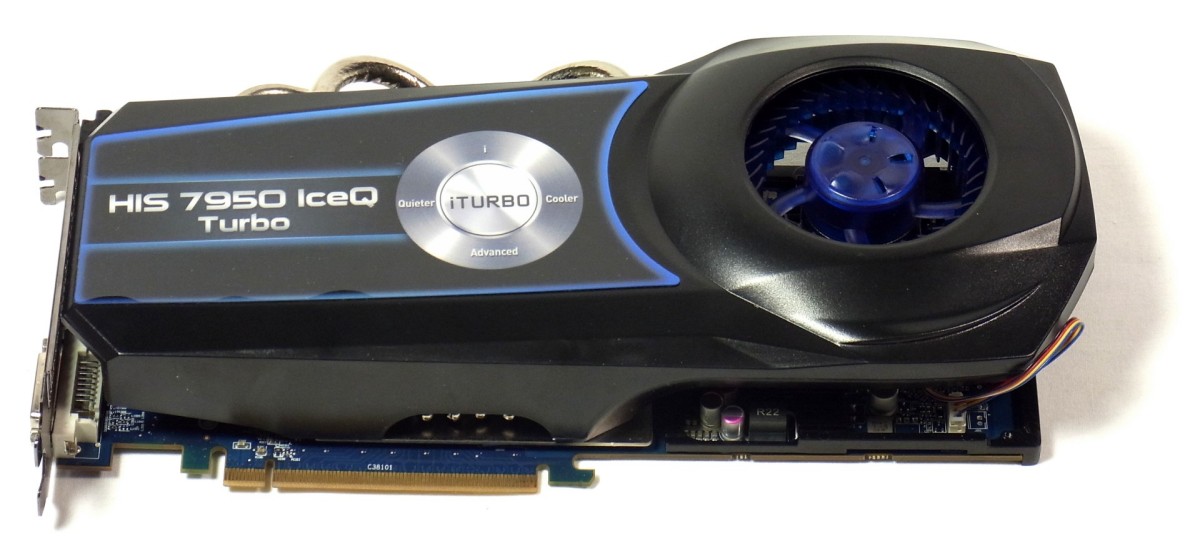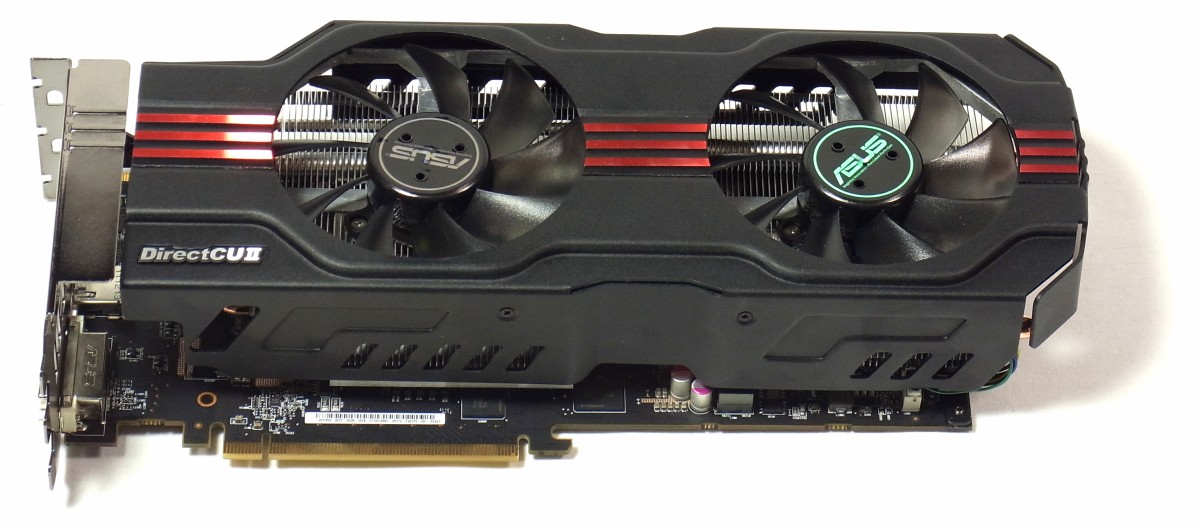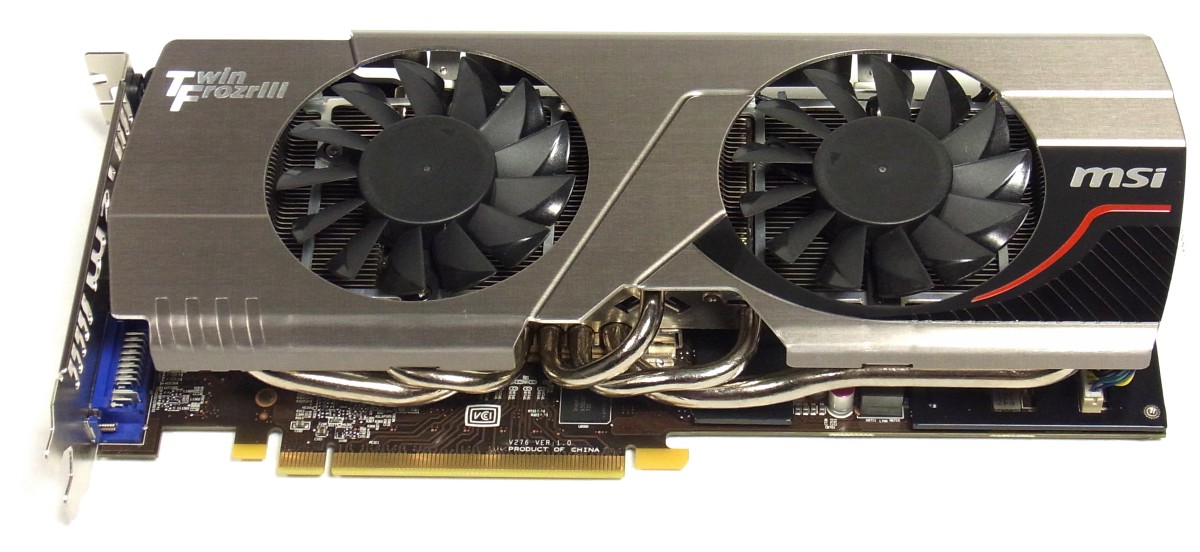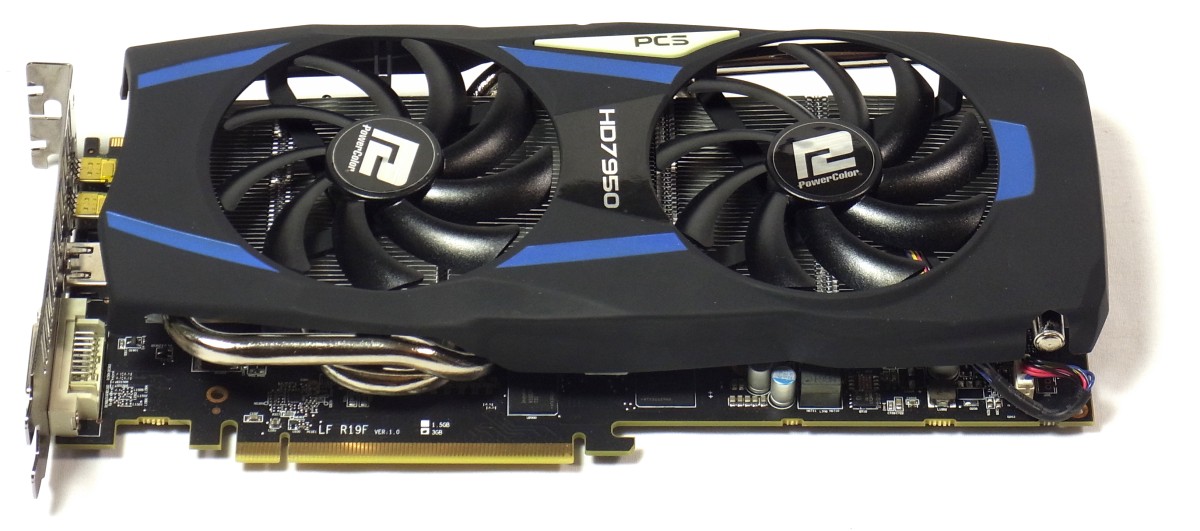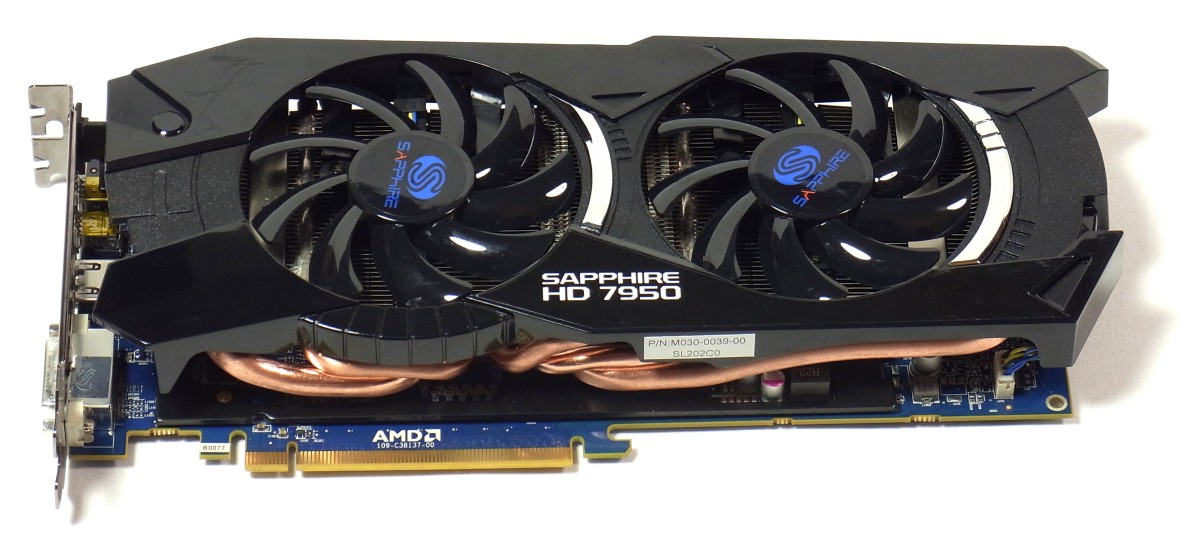Radeon HD 7950 3 GB: Six Cards, Benchmarked And Reviewed
With Nvidia's GeForce GTX 670 readily available for $400, AMD's Radeon HD 7950 shifts to the upper middle class of graphics card performance. We test six third-party interpretations in anticipation of pricing more in line with its competitive position.
Which Radeon HD 7950 Is Right For You?
Summary And Conclusion
Overall, two very different graphics cards rise to the top. First, we have HIS' HD 7950 IceQ Turbo sporting a tall two-slot thermal design. It manages to edge out the other five boards, taking first place in performance and cooling, along with third place in acoustics. Second, there's Asus' HD 7950 DirectCU II, a heavier three-slot card that generates the least noise, finishes a close second in cooling performance, and still posts competitive benchmark results. PowerColor's HD 7950 PCS runs quietly, but suffers much warmer operating temperatures. And the other two factory-overclocked submissions are both hotter and louder. Finally, AMD's reference design demonstrated the worst performance, the least-attractive acoustic profile, and the highest temperatures. Its only redeeming quality is price.
There's an elephant in the room that keeps us from wholeheartedly recommending any Radeon HD 7950, though: GeForce GTX 670. Although two of the six cards we tested currently cost less than a reference $400 GTX 670, the rest actually cost more. The least-expensive Radeon HD 7950s give you an approximately $20 savings (before rebates), but neither showed particularly well here. Unless you have an application where the 7950's compute potential is absolutely imperative, you'll probably want to hold off until these cards become a little more affordable (which they're already in the process of doing).
Best Cooling Performance: HIS HD 7950 IceQ Turbo
The DHE cooling solution on HIS' HD 7950 IceQ Turbo really works. Not only does it cool well, but it outperforms the thermal solutions of the other cards we tested. It also manages to beat them in the gaming benchmarks without generating that much extra noise.
Although this board won our recommendation in Europe, we're not able to give it an endorsement in the U.S. As we've seen HIS do in the past, it's only selling this higher-clocked Turbo model overseas. North American customers can get the HD 7950 IceQ (no Turbo), but it runs at a reference 800 MHz and costs more than $400. Sure, it's more attractive than AMD's reference design. But it's certainly not a front-runner at that lower speed.
Best Noise Performance: Asus HD 7950 DirectCU II
Get Tom's Hardware's best news and in-depth reviews, straight to your inbox.
If you don't mind losing three expansion slots to a single graphics card, and are alright tracking down a bracket to keep this heavy board in place, then Asus' HD 7950 DirectCU II does wonders to the baseline acoustic performance of AMD's reference Radeon HD 7950. Its cooling performance is bested only by HIS' impossible-to-buy HD 7950 IceQ Turbo, and an aggressive 900 MHz core clock rate tops our charts.
Solid Choices: Sapphire HD 7950 OC, MSI HD 7950 Twin Frozr III, and PowerColor HD 7950 PCS
If you don't feel like stepping down to HIS' HD 7950 IceQ (since the Turbo isn't available here in the U.S.) and the wide/heavy Asus HD 7950 DirectCU II isn't doing it for you, then the other three cards in our round-up might be more interesting. All of them are solid choices capable of delivering admirable performance.
MSI HD 7950 Twin Frozr III: Solid design, top build quality; a recently-released BIOS makes it a great card for overclocking.
PowerColor HD 7950 PCS: Slim enough to enable two cards in a CrossFire configuration; very quiet; unfortunately, unplugging power connectors can be difficult.
Sapphire HD 7950 OC: Not as quiet; again, unplugging power connectors is difficult.
Dead Last: AMD's Reference Card
The only reason to consider the reference design is if you want to attach a third-party cooling solution. Otherwise, the price difference is just not large enough to justify buying a slower, louder, hotter card over any of the models in today's round-up.
Current page: Which Radeon HD 7950 Is Right For You?
Prev Page Benchmark Results And Overclocking
Igor Wallossek wrote a wide variety of hardware articles for Tom's Hardware, with a strong focus on technical analysis and in-depth reviews. His contributions have spanned a broad spectrum of PC components, including GPUs, CPUs, workstations, and PC builds. His insightful articles provide readers with detailed knowledge to make informed decisions in the ever-evolving tech landscape
-
mayankleoboy1 in some of the earlier charts, gtx680 is written as "gtx 680 1536MB".Reply
also, gtx580 seems to be missing in the crysis2 charts. -
Just thought you might like to know that the x-axis captions for the noise level graphs are labelled as they would be for temperature, rather than decibelsReply
-
scrumworks That nvidia turbo boost is a bit cheating and you should turn it off for the test. It's basically same as overclocking and your review sample cards are most likely binned to get much better than average OC.Reply -
jimmysmitty Why was there no expanded information on the overclocking ability of the GPUs? Half at 1025MHz and Half at 1050MHz doesn't help anything.Reply
As well, what kind of memory overclocks did you get? Did you have to change the voltage of the GPUs to get said clock speeds?
This article was missing a bit too much info there to really be able to get the full picture of these GPUs. The HD7970 6 card shootout is how it should have been done for the HD7950s. Each cards overclocking ability (core/memory) and what they got with stock voltage and overvolted. -
mayankleoboy1 scrumworksThat nvidia turbo boost is a bit cheating and you should turn it off for the test. It's basically same as overclocking and your review sample cards are most likely binned to get much better than average OC.Reply
WOW.
how is it cheating? it is cheating only if the average user will not use the "GPU boost" feature, but reviewers are using it.
and, the card is faster, cheaper and cooler than the competition. so if you are better, you cheat?Fanboi. -
SessouXFX XFX HD7950 didn't make the list?Reply
You know what this is like? Imagine yourself as a concert prompter, trying to put a lineup together. You have Megadeth, White Snake, Poison, Guns -n- Roses, AC DC, you think you're doing just fine...What? Metallica wanted nothing to do with that roundup of Who's Who? Did they turn you down, or did you guys turn them down?
Because XFX matters. XFX always matter! And I'm pretty sure they weren't scared to step into the ring and beat some heads in with a comparo with the best in the biz. You guys need to get in touch with them and test their HD7950 and see if their card has the potential to blast that "elephant in the room" and hang it's head on the wall.
This is Tom's Hardware after all... -
we_san scrumworksThat nvidia turbo boost is a bit cheating and you should turn it off for the test. It's basically same as overclocking and your review sample cards are most likely binned to get much better than average OC.You want to add 7970 OC into the crowd ? Just ask ...Reply -
Deemo13 I really like the charts posted for the benchmarking! Gives a much wider range of cards.Reply
